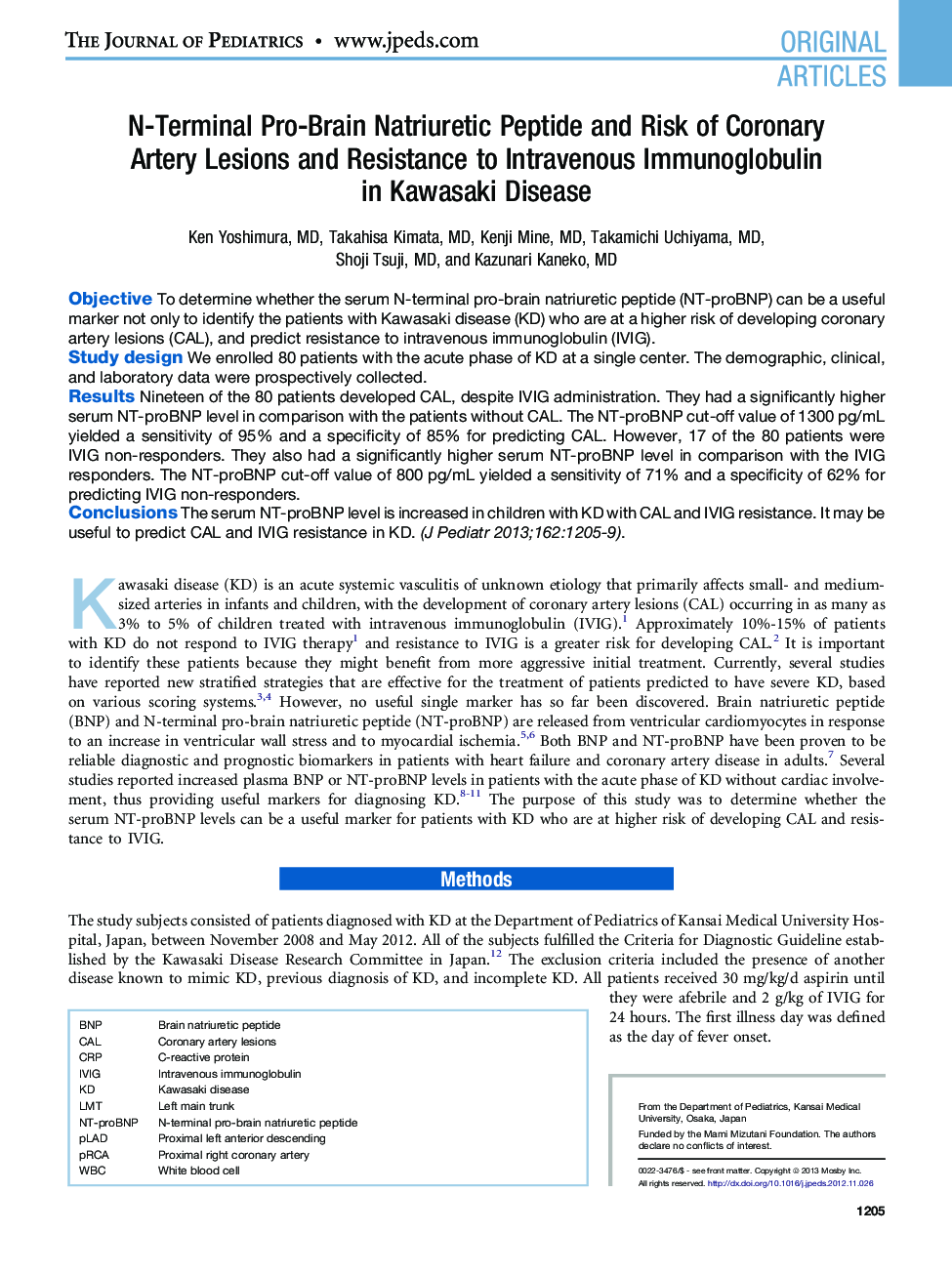| Article ID | Journal | Published Year | Pages | File Type |
|---|---|---|---|---|
| 4165416 | The Journal of Pediatrics | 2013 | 5 Pages |
ObjectiveTo determine whether the serum N-terminal pro-brain natriuretic peptide (NT-proBNP) can be a useful marker not only to identify the patients with Kawasaki disease (KD) who are at a higher risk of developing coronary artery lesions (CAL), and predict resistance to intravenous immunoglobulin (IVIG).Study designWe enrolled 80 patients with the acute phase of KD at a single center. The demographic, clinical, and laboratory data were prospectively collected.ResultsNineteen of the 80 patients developed CAL, despite IVIG administration. They had a significantly higher serum NT-proBNP level in comparison with the patients without CAL. The NT-proBNP cut-off value of 1300 pg/mL yielded a sensitivity of 95% and a specificity of 85% for predicting CAL. However, 17 of the 80 patients were IVIG non-responders. They also had a significantly higher serum NT-proBNP level in comparison with the IVIG responders. The NT-proBNP cut-off value of 800 pg/mL yielded a sensitivity of 71% and a specificity of 62% for predicting IVIG non-responders.ConclusionsThe serum NT-proBNP level is increased in children with KD with CAL and IVIG resistance. It may be useful to predict CAL and IVIG resistance in KD.
